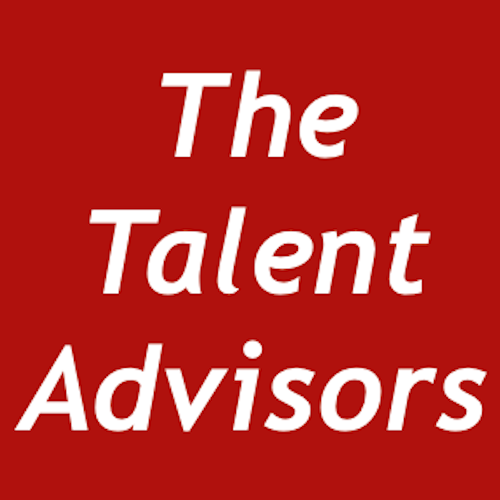VISION TO ACTION
This article is part of our Insights For Action series. Join the mailing list to receive this and more.
Executives Who Can Make Things Happen
Organisations need people who can read the marketplace sufficiently to synergise what it means for their business (direction); prioritise what needs to be done (focus); know what they need to do within, across, and outside the organisation to achieve this (connectivity); manage roadblocks and risks (governance); set and monitor the right performance (evaluates); lead with positive impact with his or her own teams (engagement); and shape the organisational tone, behaviour, conversation and reputation (cultural custodian).
Whether it is an enterprise-wide strategy, a transformation plan or a key piece of work, moving from visualisation to actualisation takes a specific execution skill set, an investment in mission-critical talent, the right resource allocation, hyper focus and discipline. It relies on identifying patterns, empowering others, developing something that is smarter or better than what currently exists, nurturing the right culture, using teachable stories, working with impact on what matters, influencing stakeholders, clearing roadblocks, assessing risks and creating a multiplier mindset.
“Execution should be as varied, as thoughtful, as subtle, as diverse, and as intertwined with strategy as is necessary to get the job done, and that will vary according to the specific challenge at hand. In short, your execution needs a strategy.”- Martin Reeves (BCG Henderson Institute) and Rodolphe Charme di Carlo
“The entrepreneur always searches for change, responds to it, and exploits it as an opportunity.” - Peter Drucker
“Leaders often fall into one of three ‘action orientations’ that govern how they take action in unfamiliar settings: analytical, contextual, or relational. The challenge for leaders is to develop a style that blends elements of all three, because ‘an overreliance on any one orientation can lead to poor action plans that may derail your ability to execute’.” - Prof. Ryan Raffaelli
“In drawing up a strategy plan, managers often confuse describing what the organisation needs to do (strategy) with what they need to do (execution).” - Graham Kenny
WHICH Operating Style IS NEEDED?
Certain operating styles create differentiation and impact. Here are three models that I find particularly useful.
Impact Players: they figure out the real job to be done; they step up and lead; they move things across the finish line; they are learning and adapting to change; they make heavy demands feel lighter. (Liz Wiseman)
Multipliers: they get more done with fewer resources, develop and attract talent. They cultivate new ideas and energy to drive organisational change and innovation. They leverage the intelligence, capabilities and motivations of the people around them. (Liz Wiseman)
Shapers: someone who comes up with unique and valuable visions and builds them out. Shapers get both the big picture and the details right. They are often curious, sense-makers, independent thinkers, orchestrators of teams and can hold conflicting thoughts simultaneously looking at them from different angles. A Shaper = Visionary + Practical Thinker + Determined. (Ray Dalio)
QUESTIONS TO CONSIDER
Why is execution so difficult?
Why is sticky change so hard?
Do you remember the last major initiative you watched die in your organisation? Did it go down dramatically? Or was it slowly and quietly suffocated by other competing priorities? Did anyone notice? What are the lessons from this experience or observation?
Why do some people break through and make an impact while others don't?
What is your theory of ‘how’?
Mentor-Coach Reading List
These reading lists have a particular focus on emergent strategy, execution, change, impact, influence and leadership.
The best-aligned enterprises are the best performing. Strategic alignment - of internal and external factors - is critical for all aspects of a company, including its people, processes and goals to be synchronised and working towards a common purpose and moving in the same direction. Alignment is systemic and iterative requiring continuous evaluation, adjustment and communication.
OUR RELATED ARTICLES AND READING LISTS
EVERY EXECUTIVE NEEDS A TRUSTED SOUNDING BOARD Most executives understand that the higher they are, the more difficult it is to talk about their real issues or concerns – and to do so free from the weight of company expectations. It is even harder to find effective and neutral listeners. Whether the objective is to be more effective in a role, to assess next-level strategies or contribute to a board, it helps to have trusted guidance.
LEADER AS STRATEGIST Mentor-Coach Conversation: there are different facets to strategy that the leader needs to consider.
WHERE IS YOUR PROBLEM-SOLVING FOCUS? Try an experiment. Think of three problems you have faced recently. Was your response situational or default? Did you change focus when needed to ensure better solutions and pathways?
BE CREATIVE - CONNECT DIFFERENT DOTS Mentor-Coach Conversation: as an executive or a board director accountable for business direction, growth and differentiation, how can you Work Creatively! to be more effective as a strategist, innovator or problem-solver?
New Kind of Business Leadership As the business environment is transforming a new kind of business leadership is emerging. Contemporary organisations are seeking solutionists, activists, relationists, imperfectionists all with the curiosity and a mindset necessary for a fragmented, uncertain and non-linear future.
FOCUS SHAPES CONTRIBUTIONS Whether you are part of an executive team, in the c-suite or have joined the boardroom, one thing is certain, where you focus your attention and what you listen for, shapes your contributions.
Hear what others value about our mentor-coach work
🚩 Discover the support we offer executives and corporates and our approach to mentoring-coaching
Be added to the distribution list for future articles.
Copyright and All Rights Reserved | About Dianne Jacobs




